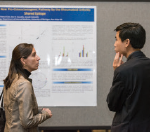Teaching junior learners, such as medical students and residents, is increasingly important in rheumatology. Given the anticipated shortage of rheumatologists, attracting more trainees to our field and enhancing knowledge of the rheumatic diseases among physicians in other fields are critical to meeting the needs of our patients.1,2 In addition, clinical reasoning is a vital skill…



